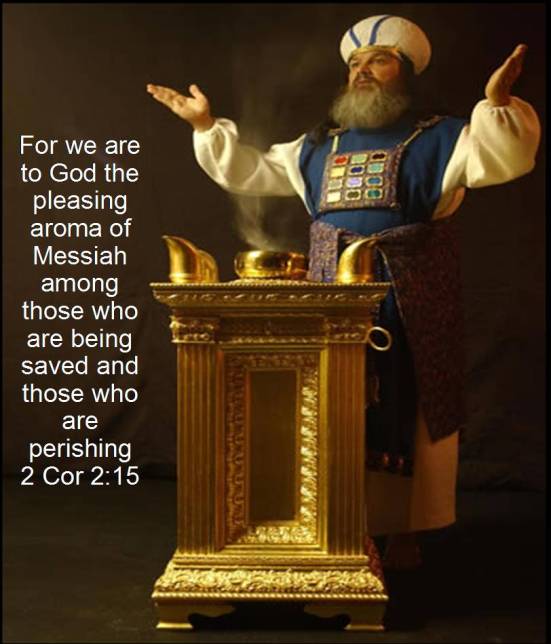 YHVH tells us in His Word that He is our Healer (Ex 15:26, Ps 103:1-5; Is 53:4-5). We know through the sacrifice of Yeshua we can be set free from sin. And that would have been enough, but Dayenu! We have a God who always does more. He heals our bodies and souls completely! Today, let us focus on healing for our soul wounds.
YHVH tells us in His Word that He is our Healer (Ex 15:26, Ps 103:1-5; Is 53:4-5). We know through the sacrifice of Yeshua we can be set free from sin. And that would have been enough, but Dayenu! We have a God who always does more. He heals our bodies and souls completely! Today, let us focus on healing for our soul wounds.
We all have them. Some are just under the surface and others are buried deep within us. It is nearly impossible to reside in this fallen world and remain unscathed. However, it is up to us whether or not we will remain injured and broken. It is possible for YHVH to heal all our soul wounds if we are willing to cooperate with Him. This is often easier said than done, but well worth the effort.
What are soul wounds? Our souls are made up of mind, will, and emotions. Many types of wrongs can damage to our souls. In many societies, we feel pressured to bury emotional pain and proceed as if nothing happened. Over time, some hurts get buried deep for so long that we seem to forget about them. Isn’t it best to forget and move on? It is best to forgive and move on, but it is also necessary to take the time to work on healing the soul wounds that often remain. We must not confuse forgiving others with healing the wounds they have inflicted. The two are separate although closely connected.
Just as untended flesh wounds get worse and cause complications, so do untended soul wounds fester within us. Fear, anger, bitterness, resentment, rejection, pain, or guilt must be dealt with properly. Holding onto such burdens slows us down and weakens our relationships with YHVH and others. We build walls or strongholds to “protect” ourselves from being hurt again. However, the strongholds do not guarantee that we will be safe from future harm; they actually imprison us, making us more vulnerable to our enemies.
YHVH is aware of all our injuries and promises in His word to restore us to perfect wholeness (shalom). Let us examine some of YHVH’s promises.
Fear, anxiety: Peace I leave with you; my peace I give to you. Not as the world gives do I give to you. Let not your hearts be troubled, neither let them be afraid (John 14:27).
For you did not receive the spirit of slavery to fall back into fear, but you have received the Spirit of adoption as sons, by whom we cry, “Abba! Father!” The Spirit himself bears witness with our spirit that we are children of God, (Rom 7:15-16)
For God gave us a spirit not of fear but of power and love and self-control (2 Tim 1:7).
So we can confidently say, “The Lord is my helper; I will not fear; what can man do to me?” (Heb 13:6)
Fear not, for I am with you; be not dismayed, for I am your God; I will strengthen you, I will help you, I will uphold you with my righteous right hand (Is 41:10).
Anger, bitterness, resentment: [YHVH] will fight for you, and you have only to be silent.” (Ex. 14:14)
In your anger do not sin, do not let the sun go down on your anger and do not give the devil a foothold. Get rid of all bitterness, rage and anger, brawling and slander, along with every form of malice. (Eph 4: 26-27, 31)
Do not say, “I will repay evil”; wait for the Lord, and he will deliver you (Prov 20:22).
Whoever says he is in the light and hates his brother is still in darkness. Whoever loves his brother abides in the light, and in him there is no cause for stumbling. But whoever hates his brother is in the darkness and walks in the darkness, and does not know where he is going, because the darkness has blinded his eyes (1 John 2:9-11).
And after you have suffered a little while, the God of all grace, who has called you to his eternal glory in Christ, will himself restore, confirm, strengthen, and establish you (1 Pet 5:10).
Loss, mourning, rejection: When the righteous cry for help, the Lord hears and delivers them out of all their troubles. The Lord is near to the brokenhearted and saves the crushed in spirit. Many are the afflictions of the righteous, but the Lord delivers him out of them all. He keeps all his bones; not one of them is broken (Ps. 34:17-20)
He heals the brokenhearted and binds up their wounds (Ps. 147:3).
You have turned for me my mourning into dancing; you have loosed my sackcloth and clothed me with gladness, (Ps. 20:11)
Sin, guilt: Therefore, confess your sins to one another and pray for one another, that you may be healed. The prayer of a righteous person has great power as it is working (James 5:16).
Create in me a clean heart, O God, and renew a right spirit within me (Ps. 51:10).
There is therefore now no condemnation for those who are in Christ Jesus (Rom 8:1).
For I will be merciful toward their iniquities, and I will remember their sins no more.” (Heb 8:12)
But when they heard it, they went away one by one, beginning with the older ones, and Jesus was left alone with the woman standing before him. Jesus stood up and said to her, “Woman, where are they? Has no one condemned you?” She said, “No one, Lord.” And Jesus said, “Neither do I condemn you; go, and from now on sin no more.” (John 8:9-11)
How can we cooperate with YHVH to make ourselves whole again? First, we need to examine ourselves and ask the Holy Spirit to bring soul wounds to our attention. Next, we take our wounds and lay them at the feet of Yeshua. Then, we ask YHVH to heal our wounds according to His promises. We meditate on His promises until they become not mere words, but reality for us. Healing of soul wounds can lead to physical healing.
Only when we are made whole do we reach the full potential YHVH has planned for us. During these ten days of awe, let us seek YHVH’s help in examining and healing our souls.
